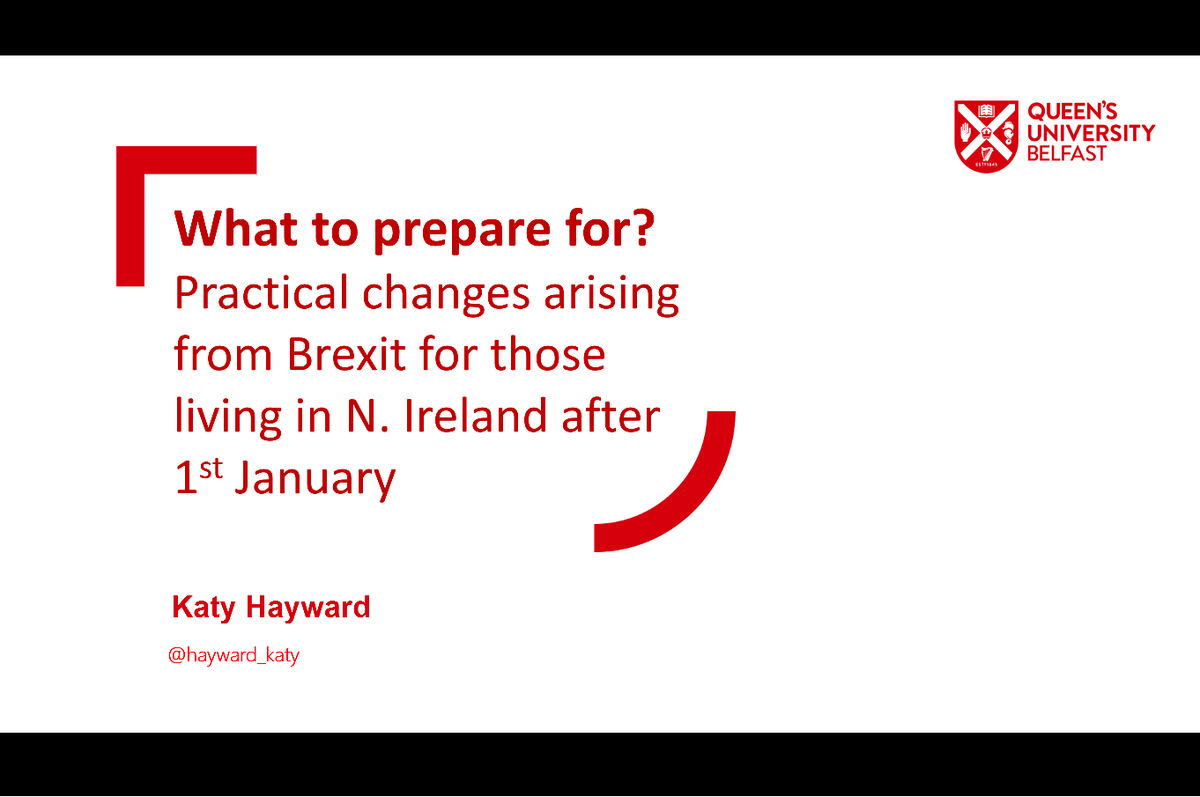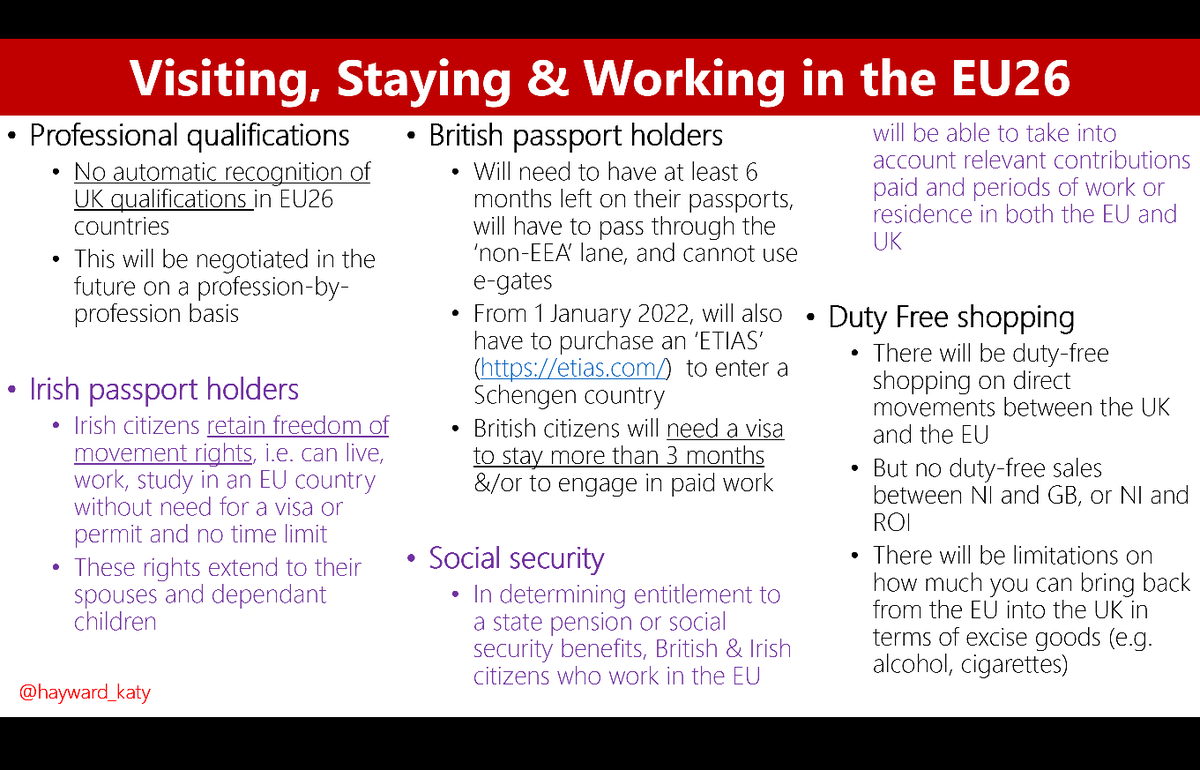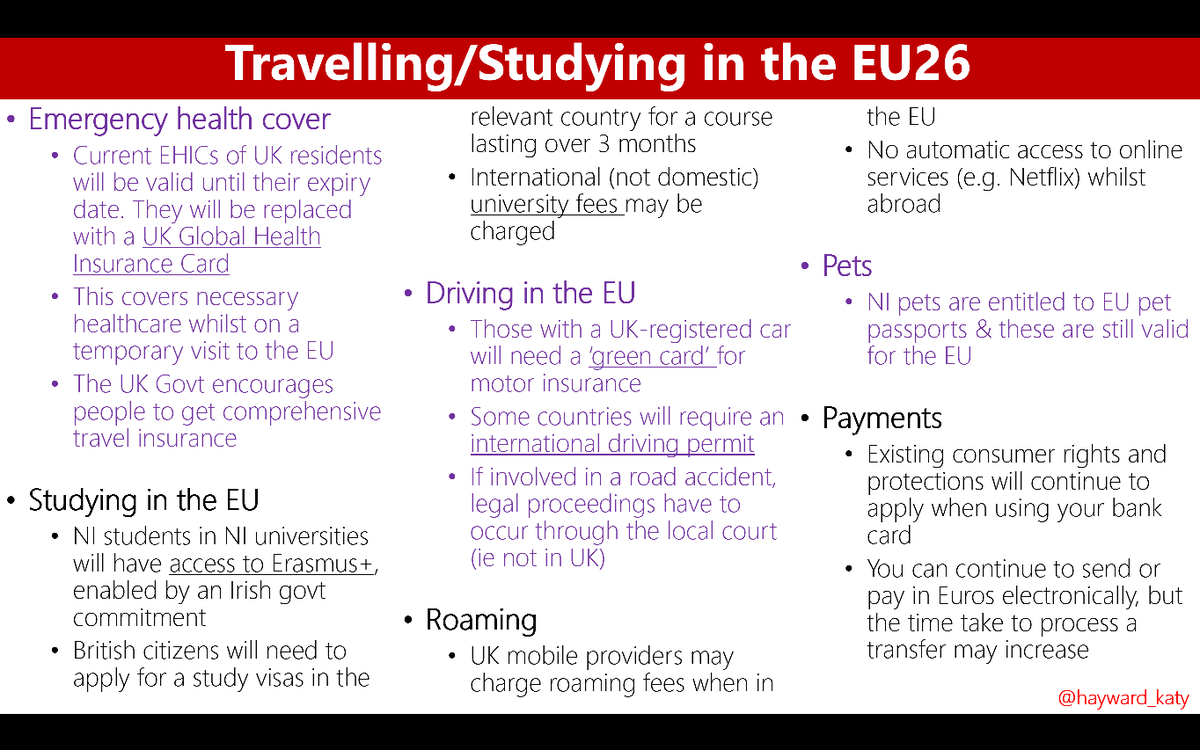
*POLLING!📊*
The NI/IRL #Protocol is a hot topic, at least in NI at the moment.
But we haven’t really known what people actually think about it… Until now!!
We've results of the 1st detailed opinion poll on the #Protocol for @PostBrexitGovNI project (give us a follow).
1/7
The NI/IRL #Protocol is a hot topic, at least in NI at the moment.
But we haven’t really known what people actually think about it… Until now!!
We've results of the 1st detailed opinion poll on the #Protocol for @PostBrexitGovNI project (give us a follow).
1/7

The poll used @LucidTalk opinion panel (thanks guys).
Weighted sample n.2156, margin of error -/+ 2-3%.
It’s the first of polls to be done every 4m for this @ESRC project led by @DPhinnemore @QUBelfast.
Poll conducted 24-28 March, so before unrest.
Headline results:
2/7
Weighted sample n.2156, margin of error -/+ 2-3%.
It’s the first of polls to be done every 4m for this @ESRC project led by @DPhinnemore @QUBelfast.
Poll conducted 24-28 March, so before unrest.
Headline results:
2/7
Overall we see strong divisions of opinion over the #Protocol.
Most think #Brexit is not a good thing for UK.
Most (2/3) respondents think NI needs particular arrangements through Brexit.
But then they're fairly split over whether the Protocol is appropriate or good.
3/7
Most think #Brexit is not a good thing for UK.
Most (2/3) respondents think NI needs particular arrangements through Brexit.
But then they're fairly split over whether the Protocol is appropriate or good.
3/7
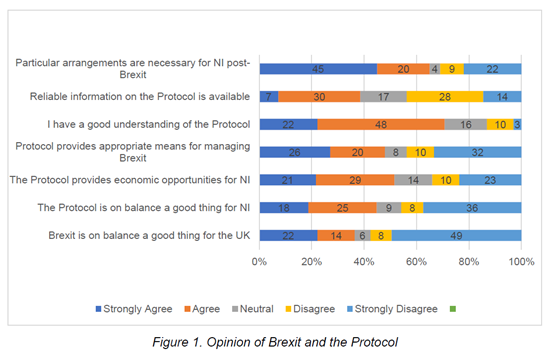
NI Respondents have concerns about current impact of #Protocol across the spectrum. Mostly in relation to political stability in NI & relationship to GB.
There are strongly held views about these issues (few are neutral).
This fig. shows positive views minus negative ones.
4/7
There are strongly held views about these issues (few are neutral).
This fig. shows positive views minus negative ones.
4/7

Problem= NI voters distrust of key players when it comes to handling NI interests vis-a-vis the Protocol.
This is staggeringly bad re: UKGov, Westminster & Whitehall (5-8% trust), but also low for Irish Govt, UK-EU & NI institutions.
Notable exception is NI business reps!👏
5/7
This is staggeringly bad re: UKGov, Westminster & Whitehall (5-8% trust), but also low for Irish Govt, UK-EU & NI institutions.
Notable exception is NI business reps!👏
5/7
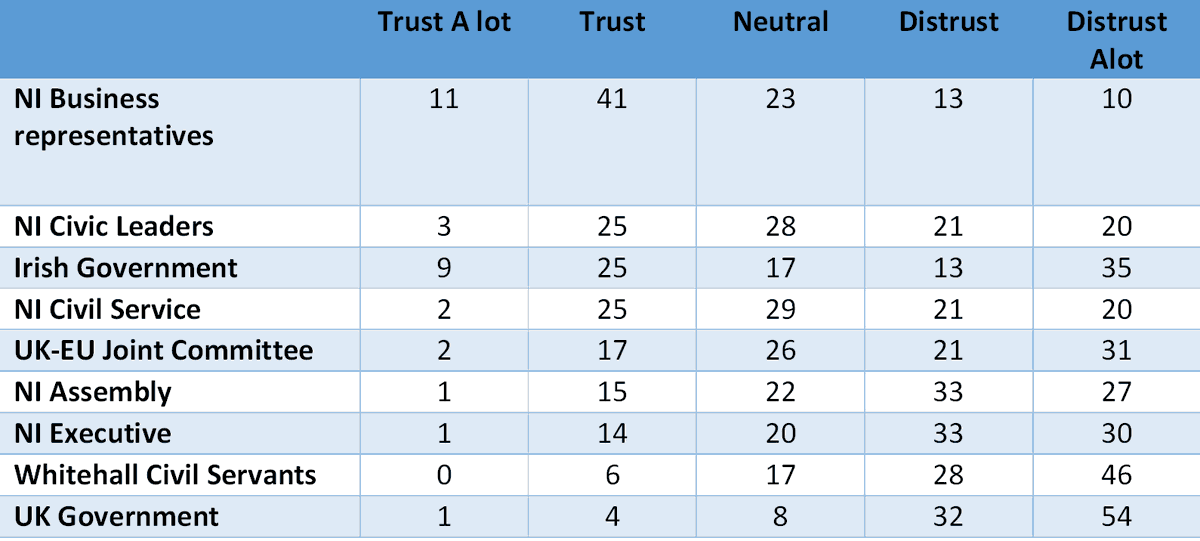
In view of 2024 consent vote on #Protocol Arts.5-10 for MLAs, we asked about voting intentions.
Most will consider a candidate’s view on the Protocol when it comes to voting in Assembly election next year🗳️
A slight majority will only vote for someone in favour of keeping it
6/7
Most will consider a candidate’s view on the Protocol when it comes to voting in Assembly election next year🗳️
A slight majority will only vote for someone in favour of keeping it
6/7

Last note, our results differ slightly from @BBCSpotlightNI poll (56% in favour of retaining Protocol in the consent vote, 47% wanting it scrapped overall). Cd relate to diffs in timing & Qs in poll.
More results & analysis to come!📊
Keep an eye on: qub.ac.uk/sites/post-bre…
7/7
More results & analysis to come!📊
Keep an eye on: qub.ac.uk/sites/post-bre…
7/7
• • •
Missing some Tweet in this thread? You can try to
force a refresh



